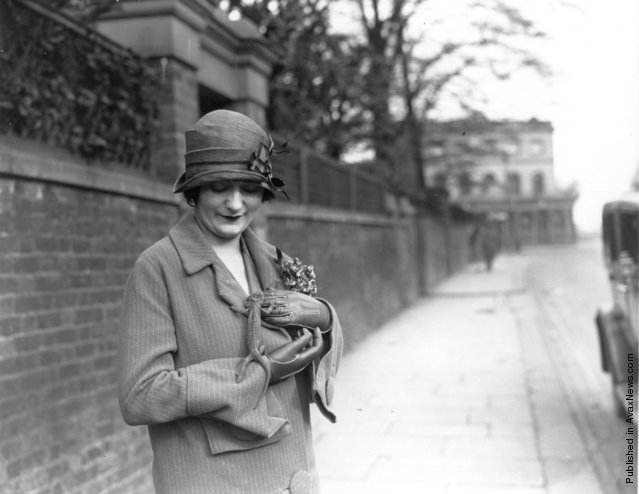
“Chameleons (family Chamaeleonidae) are a distinctive and highly specialized clade of lizards. They are distinguished by their parrot-like zygodactylous feet, their separately mobile and stereoscopic eyes, their very long, highly modified, and rapidly extrudable tongues, their swaying gait, the possession by many of a prehensile tail, crests or horns on their distinctively shaped heads, and the ability of some to change color. Uniquely adapted for climbing and visual hunting, the approximately 160 species of chameleon range from Africa, Madagascar, Spain and Portugal, across south Asia, to Sri Lanka, have been introduced to Hawaii, California and Florida, and are found in warm habitats that vary from rain forest to desert conditions”. – Wikipedia
Photo: A woman with the latest fashion accessory, a chameleon. (Photo by Fox Photos/Getty Images). Circa 1926
Photo: A woman with the latest fashion accessory, a chameleon. (Photo by Fox Photos/Getty Images). Circa 1926
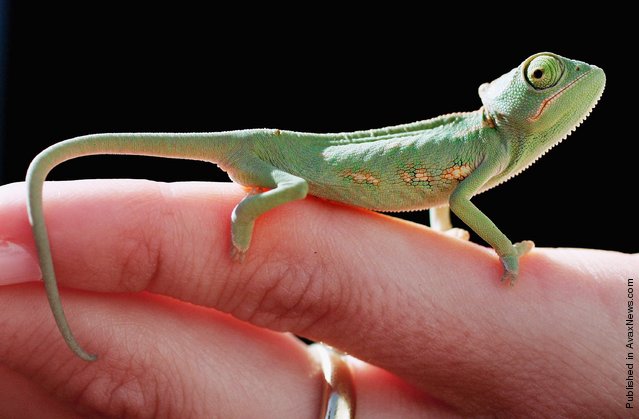
A one-month-old Veiled Chameleon crawls on the hand of a Taronga Zoo staff member September 19, 2006 in Sydney, Australia. Taronga Zoo's Chameleon breeding programme has for the first time in an Australian zoo produced four youngsters over the past month, with four eggs still to hatch. Chameleons are renowned for their ability to change colour, and their large eyes which can move independently of each other, allowing them to look in two directions at once. (Photo by Ian Waldie/Getty Images)
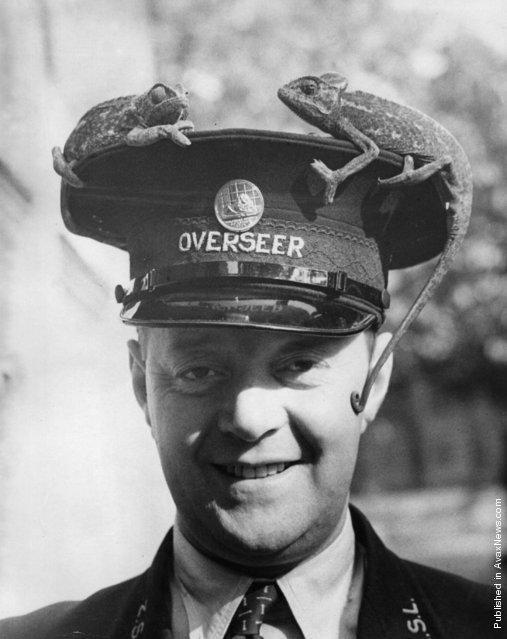
A keeper at London Zoo with two chameleons decorating his cap. (Photo by William Vanderson/Fox Photos/Getty Images). 13th October 1936
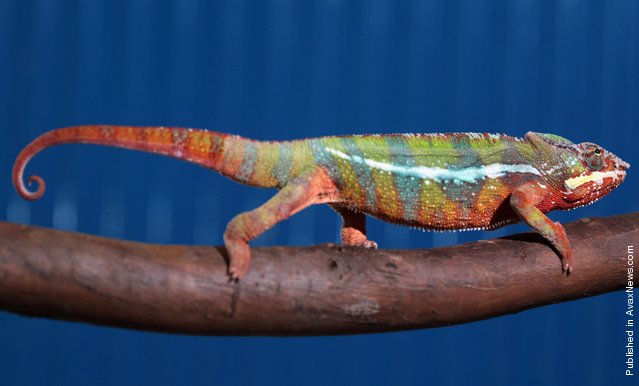
A Panther Chameleon is pictured at Heathrow Airport's Animal Reception Centre on January 25, 2011 in London, England. Many animals pass through the centre's doors ranging from exotic animals such as snow leopards and elephants, snakes and crocodiles, to the more common such as cats and dogs. In 2010 alone the centre processed approximately 10,500 cats and dogs, 1,300 birds, 105,000 day old chicks, 246,000 reptiles, 230 horses and 29 million fish. Most animals are part of zoo transfer schemes, the pet trade, or are pets in transit. (Photo by Dan Kitwood/Getty Images)
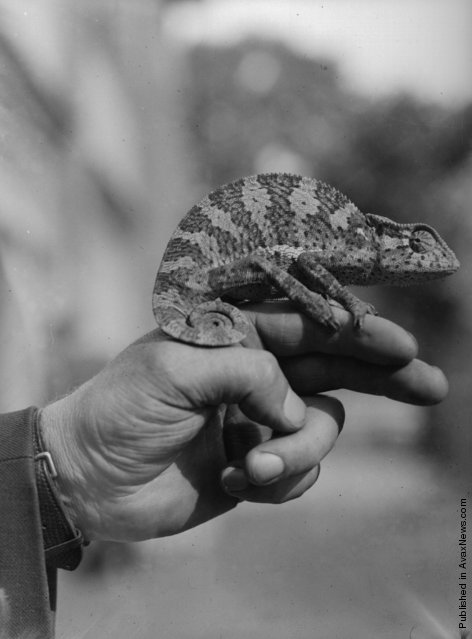
A chameleon at London Zoo perches on a keeper's fingers. (Photo by Fox Photos/Getty Images). September 1934
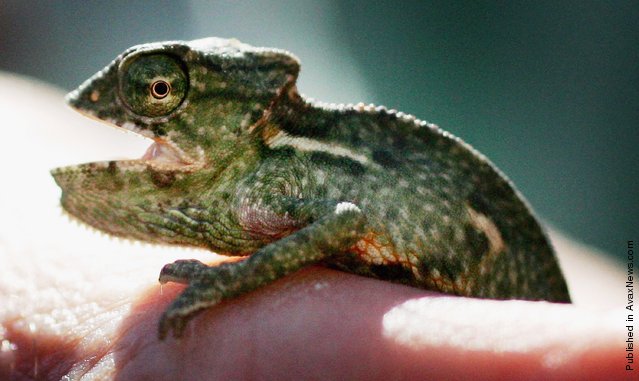
A one-month-old Veiled Chameleon crawls on the hand of a Taronga Zoo staff member September 19, 2006 in Sydney, Australia. Taronga Zoo's Chameleon breeding programme has for the first time in an Australian zoo produced four youngsters over the past month, with four eggs still to hatch. Chameleons are renowned for their ability to change colour, and their large eyes which can move independently of each other, allowing them to look in two directions at once. (Photo by Ian Waldie/Getty Images)
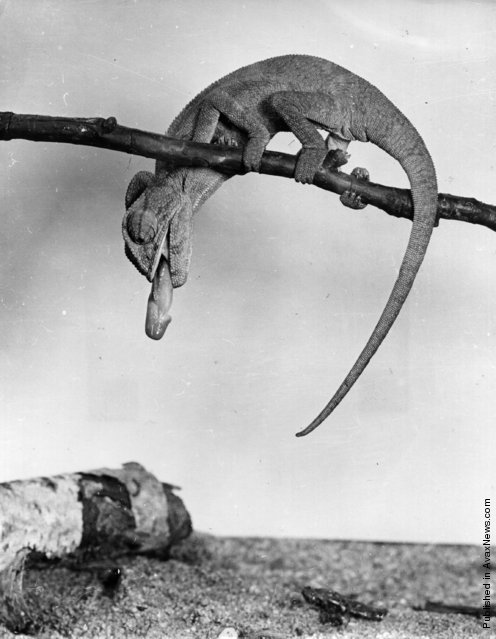
A chameleon prepares to unleash its tongue on an unsuspecting cockroach. (Photo by Hess/Three Lions/Getty Images). Circa 1950
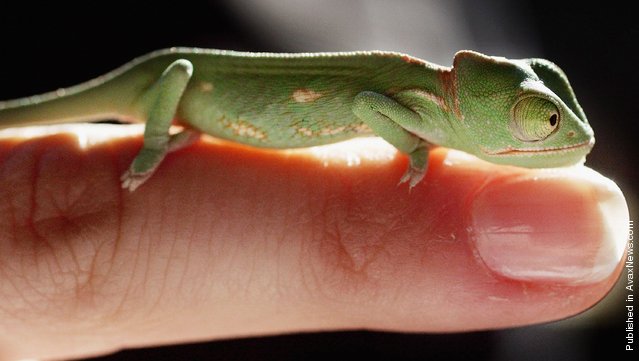
A one-month-old Veiled Chameleon crawls on the finger of a Taronga Zoo staff member September 19, 2006 in Sydney, Australia. (Photo by Ian Waldie/Getty Images)
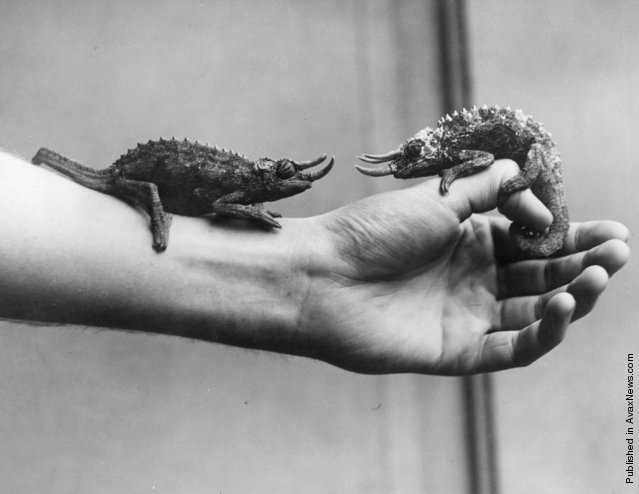
A pair of chameleons rest on a man's hand. (Photo by Hulton Archive/Getty Images). Circa 1950
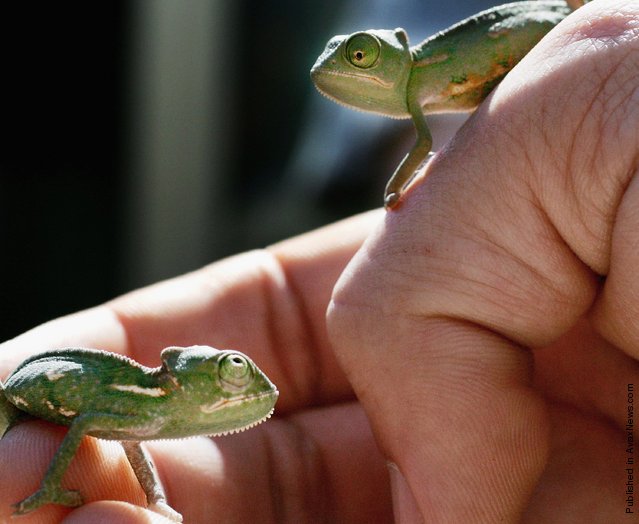
A pair of one-month-old Veiled Chameleons crawl on the hand of a Taronga Zoo staff member September 19, 2006 in Sydney, Australia. (Photo by Ian Waldie/Getty Images)
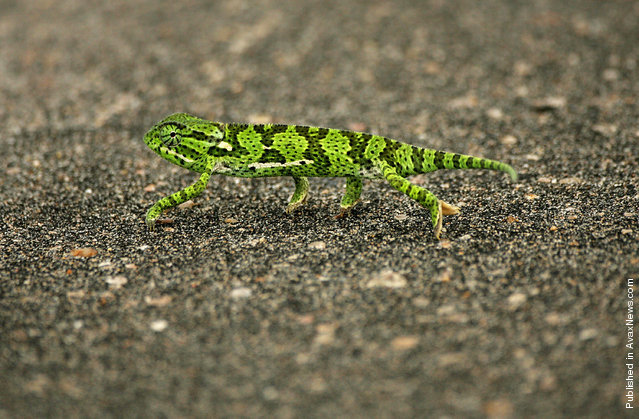
A flap-neck chameleon (Chamaeleo dilepis) crosses a road pictured in the Kruger National Park on December 7, 2007 in Mpumalanga, South Africa. (Photo by Warren Little/Getty Images)
20 Mar 2011 15:45:00,
post received
0 comments
